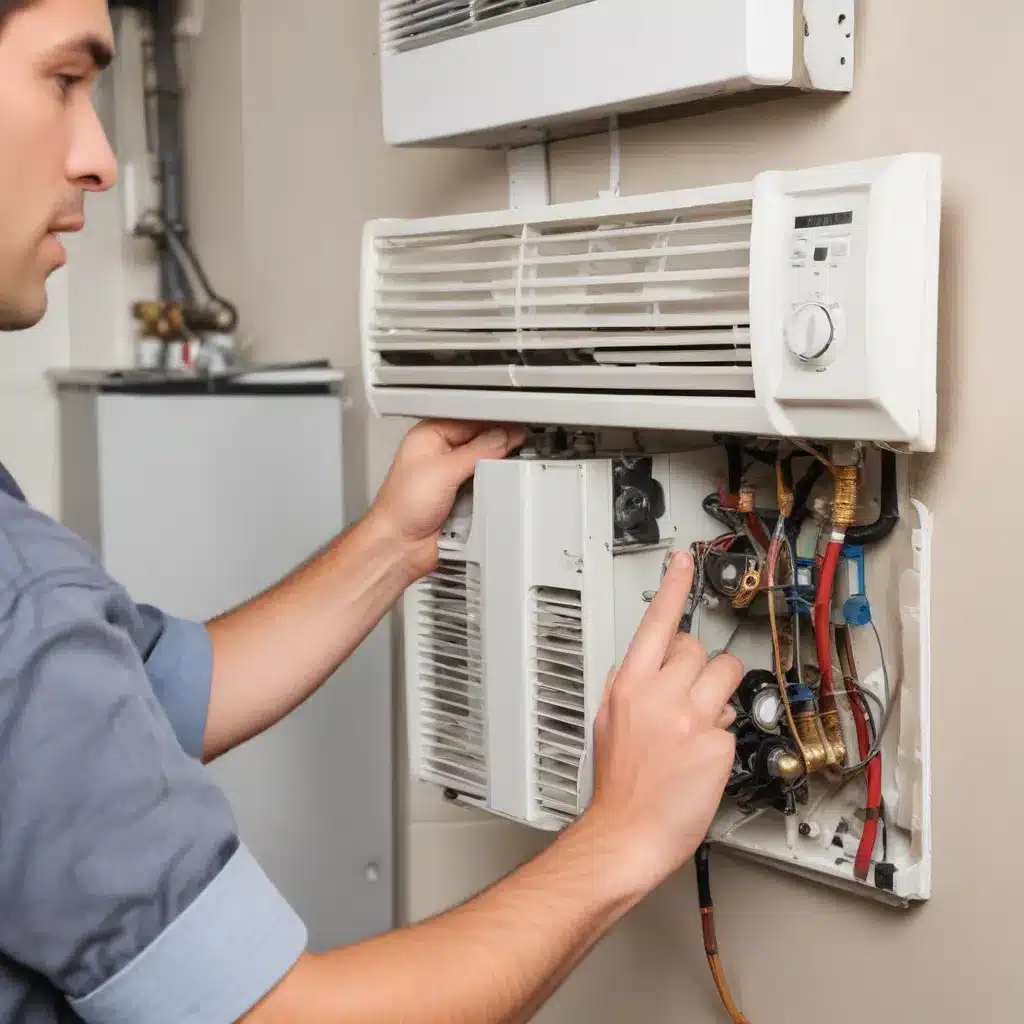
Prioritizing HVAC Maintenance for Long-Term Efficiency and Savings
Your home’s heating, ventilation, and air conditioning (HVAC) system is a significant investment, and proper maintenance is crucial to ensuring its longevity and optimal performance. As a seasoned plumbing and heating expert, I’ve seen firsthand the benefits of proactive HVAC care and the consequences of neglecting it. In this comprehensive guide, I’ll share practical tips and in-depth insights to help you extend the life of your HVAC system, reduce energy costs, and maintain a comfortable living environment year-round.
Understanding HVAC Lifespans and Replacement Considerations
HVAC systems, on average, have a lifespan of 15 to 20 years, but this can vary greatly depending on several factors. Usage patterns, maintenance history, and the quality of the equipment all play a role in determining how long your system will last. While age is an important consideration, it’s not the sole factor in deciding when to replace your HVAC unit.
Other key factors to weigh include the system’s energy efficiency, repair costs, and overall performance. If your unit is nearing the upper end of the lifespan range and starting to experience more frequent breakdowns or declining efficiency, it may be time to start planning for a replacement. Consulting with a trusted DD Plumbing and Heating professional can help you evaluate your system’s condition and determine the best course of action.
Mastering HVAC Maintenance: Practical Tips and Strategies
Regardless of your HVAC system’s age, maintaining it properly is the key to prolonging its lifespan and ensuring consistent, energy-efficient operation. Here are some essential maintenance tasks to incorporate into your home care routine:
1. Changing Air Filters Regularly
Clean air filters are crucial for healthy indoor air quality and the proper functioning of your HVAC system. Dirty, clogged filters force the equipment to work harder, leading to increased energy consumption and potential damage over time. Aim to replace or clean your air filters every 1-3 months, depending on factors like the number of occupants, pets, and the system’s usage.
2. Scheduling Professional Tune-Ups
Regular tune-ups by a qualified HVAC technician can make a significant difference in the longevity and performance of your system. These routine maintenance visits typically include comprehensive inspections, cleaning, and adjustments to ensure all components are operating at peak efficiency. It’s recommended to schedule tune-ups at least twice a year, typically in the spring and fall, to prepare for the upcoming heating and cooling seasons.
3. Addressing Repairs Promptly
Don’t ignore even minor issues with your HVAC system. Seemingly small problems, such as strange noises, uneven cooling, or decreased airflow, can quickly escalate into more complex and costly repairs if left unaddressed. By addressing problems as soon as they arise, you can prevent further damage and extend the life of your equipment.
4. Improving Home Insulation and Ductwork
The effectiveness of your HVAC system is heavily influenced by your home’s insulation and ductwork. Proper insulation helps maintain indoor temperatures, reducing the strain on your heating and cooling equipment. Ensuring that your ductwork is sealed and free of any leaks can also optimize airflow, enhancing efficiency and extending the lifespan of your HVAC system.
5. Optimizing Thermostat Settings
The way you use your thermostat can have a significant impact on your HVAC system’s longevity. Avoid setting the temperature more than 20 degrees below the outdoor temperature, as this can cause the system to work excessively and wear down components prematurely. Additionally, utilizing a programmable or smart thermostat can help regulate temperature settings and reduce unnecessary run time, ultimately preserving your HVAC system.
Embracing Energy-Efficient HVAC Upgrades
While maintaining your existing HVAC system is crucial, there may come a time when upgrading to a newer, more energy-efficient model is the best option. Modern HVAC technologies, such as heat pumps, offer significant improvements in energy efficiency and can provide both heating and cooling capabilities, often with lower operating costs.
When considering an HVAC upgrade, it’s important to work with a reputable DD Plumbing and Heating professional to ensure the new system is properly sized and installed for your home. Proper sizing is essential to achieving optimal performance and energy savings, as an oversized or undersized system can lead to inefficient operation and premature wear and tear.
Maximizing HVAC Lifespan: Financing and Incentive Programs
Investing in HVAC maintenance and upgrades can seem daunting, but there are various financing options and incentive programs available to help offset the costs. Many utility companies, government agencies, and HVAC manufacturers offer rebates, tax credits, or financing solutions to encourage energy-efficient home improvements.
By taking advantage of these programs, you can not only extend the life of your HVAC system but also improve your home’s overall energy efficiency and reduce your long-term operating expenses. Reach out to your local DD Plumbing and Heating team to learn more about the available options in your area.
Conclusion: Prioritizing HVAC Maintenance for a Comfortable, Efficient Home
Maintaining your HVAC system is a crucial aspect of home ownership, ensuring your family’s comfort and protecting your investment. By following the practical tips and strategies outlined in this guide, you can prolong the life of your heating and cooling equipment, reduce energy costs, and enjoy a more efficient, reliable home environment.
Remember, regular maintenance and timely upgrades are essential for maximizing the longevity and performance of your HVAC system. Stay vigilant, partner with a trusted DD Plumbing and Heating professional, and enjoy the benefits of a well-maintained, energy-efficient home for years to come.


